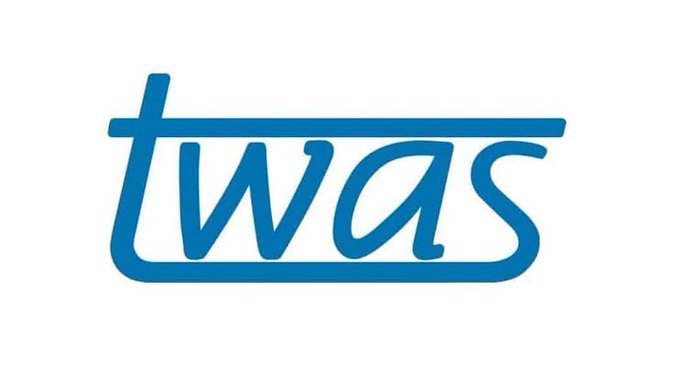
2022 University of Liverpool Brett PhD Student Fellowships in Entrepreneurship for Students Worldwide
Deadline: August 12, 2022.
The University of Liverpool Management School is inviting applications from prospective PhD candidates with an outstanding academic achievement and research potential for three Brett PhD Student Fellowships in Entrepreneurship in the 2022/23 academic year (start date 1st October 2022).
The University of Liverpool’s newly established Brett Centre for Entrepreneurship is inviting applications for up to three fully-funded PhD studentships. The entrepreneurship field of research is booming and we are especially interested in applications in three main areas: ‘place’; ‘people’; and ‘performance’. We are not overly prescriptive in terms of specific projects or their methodologies, as we are looking to appoint creative and talented students who can contribute to the development of the Brett Centre and its exciting new environment. However, proposals may seek to use existing concepts within these areas, such as eco-systems, social inclusion and innovation, or draw upon related fields outside the entrepreneurship domain to help in the development of theory and practice.
RESEARCH AREAS
Potential applicants may wish to consider the following topics, although other applications linked to our three main research areas (people, place and performance) will also be considered.
Topic area 1: Enable and Empower Deprived Groups: Entrepreneurship as an important route for inclusive development: Extensive research has been undertaken to understand the critical features that are significantly associated with social exclusion including wellbeing, improved health, social capital and community cohesion. Whilst the popular enterprise policy discourse assumes entrepreneurship and business creation as a mechanism to enable inclusive growth and empower socially excluded individuals to overcome multiple deprivations, our theoretical understanding of how innovative entrepreneurial business models could facilitate social inclusion remains provisional and often, limited in scope. It is accepted that many socially excluded groups struggle to achieve their full entrepreneurial potential because they are under-capitalised, lack access to appropriate business support and thereby constrain impacts on productive economic growth. In this proposed project we aim to recruit a PhD student to join the Brett Centre for Entrepreneurship to conduct research addressing challenges of inclusive development and the role entrepreneurship and innovative business models play in alleviating such challenges. More specifically, we aim to understand the necessary regulatory and institutional conditions that foster or hinder the marginalised groups engage in entrepreneurial activities, and thereby develop new knowledge and policies to harness for inclusive development that can enable and empower deprived groups, e.g. female, migrants to enhance their capabilities and improve their living standards through entrepreneurial route to social inclusion.
Topic area 2: Technology start-up eco-system promoting youth entrepreneurship: “Leave no one behind” has been a key objective and a top priority of the United Nation 2030 Sustainable Development Goals (SDGs), which incorporates global ambitions towards a fair and justifiable world order (UN, 2015). As youth are often marginalised and excluded from labour market participation due to unequal access to education, resources and information, empowering and including them into the mainstream market and income creation activities turns out to be an important dimension to achieve SDGs and build an inclusive society. This is important as many countries are witnessing an increase in young people entering the labour market. Entrepreneurial activity is an important source of income and employment and, as such, is the focus of policies whose aim is to provide alternative employment opportunities to remedy the lack of sufficient jobs to absorb young people into the labour market. While interest in the phenomenon of youth entrepreneurship as a niche research area is increasing as the 21st century progresses, there is an absence of theoretically informed and empirically rich research on youth entrepreneurship. In this proposed project we aim to recruit a PhD student to join the Brett Centre for Entrepreneurship to conduct research to study the mechanisms through which eco-systems could promote the start-up process of young aspiring entrepreneurs, specifically in the context of digital entrepreneurship. While digital technology-based new businesses can be an important route for inclusive development for youth, there are a number of gaps to fill in order for this potential to fully materialise. More specifically we need to build knowledge on how founder diversity, perceptions of the technology start-up ecosystem, and the resources to which they have access, combine to shape entrepreneurial experiences of inequality and belonging for youth.
Topic Area 3: An ecosystem perspective on informal entrepreneurship: It has been widely acknowledged that entrepreneurship and innovation play a significant role in bringing socio-economic development and help transform impoverished regions. However, while many ‘informal’ entrepreneurs engage in business activities to survive, many fail to build sustainable business models and often fail (Matos and Hall, 2019). While policy discourse promotes an understanding of the role of entrepreneurship in alleviating poverty and marginalisation, our theoretical understanding of the interplay between institutional and individual factors in fostering productive entrepreneurship is still lacking. In this project, we aim to recruit a PhD student to join the Brett Centre for Entrepreneurship to conduct research addressing the challenges of informal entrepreneurship and the role of political, legal, regulatory and economic factors in alleviating such challenges. More specifically, we aim to understand both the contextual and institutional frameworks that foster or hinder entrepreneurship as a way of empowering impoverished and marginalised regions. This is an opportunity that will appeal to candidates who are interested in exploring the interplay between individual and institutional factors in promoting productive oriented entrepreneurship vs informal entrepreneurship.
ELIGIBILITY
Open to students worldwide.
FUNDING
Successful candidates will receive an annual stipend of £16,062 plus a fee waiver to cover four years of full-time stipend and tuition fees. Overseas students will receive fees at Home rate (a possible top up payment may be available for International candidates, subject to availability); the maintenance grant for Overseas and Home students is the same amount.
APPLICATION
Applicants must complete all sections of the University Postgraduate Study Application Form. Applications to be made via the University of Liverpool Apply Online, system, selecting programme of study Management Studies
https://app.askadmissions.co.uk/AYApplicantLogin/fl_ApplicantLogin.asp?id=liv
In the Finance section select funding source Sponsor and insert ‘PHD-BRETT-ULMS-2022 studentship’ in the box below. Also include this as the first line of your Personal Statement.
Alongside the completed application form and Personal Statement, applicants should submit the following supporting documents:
- Curriculum Vitae (CV)
- Two academic reference letters, signed and on letter headed paper
- University transcripts
- English Language qualifications
- Degree certificates
- Personal statement
- Research proposal**.



